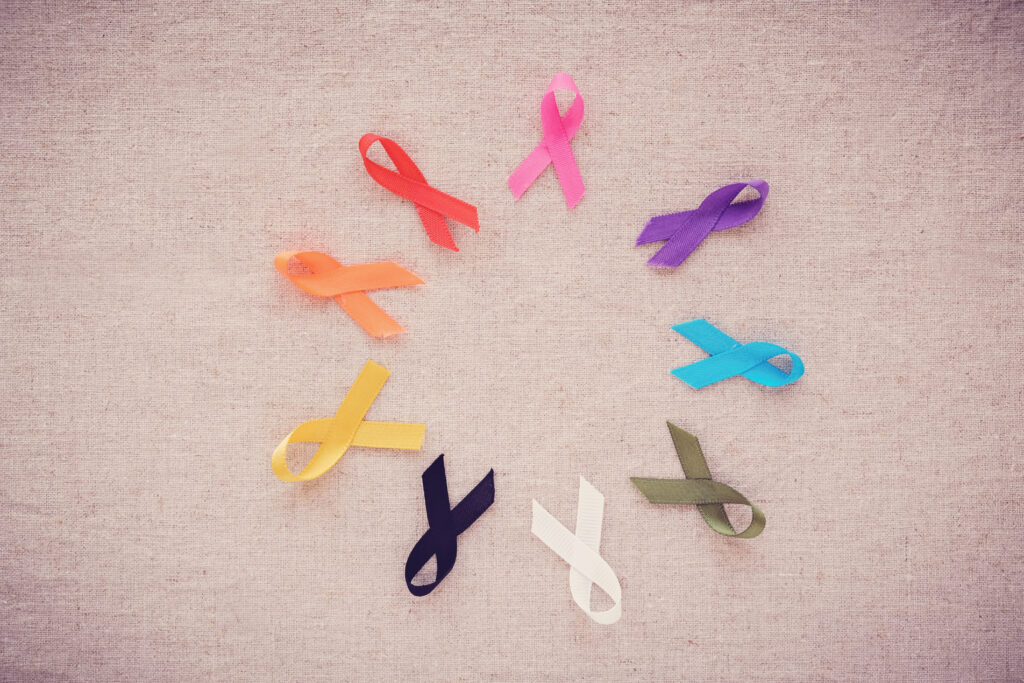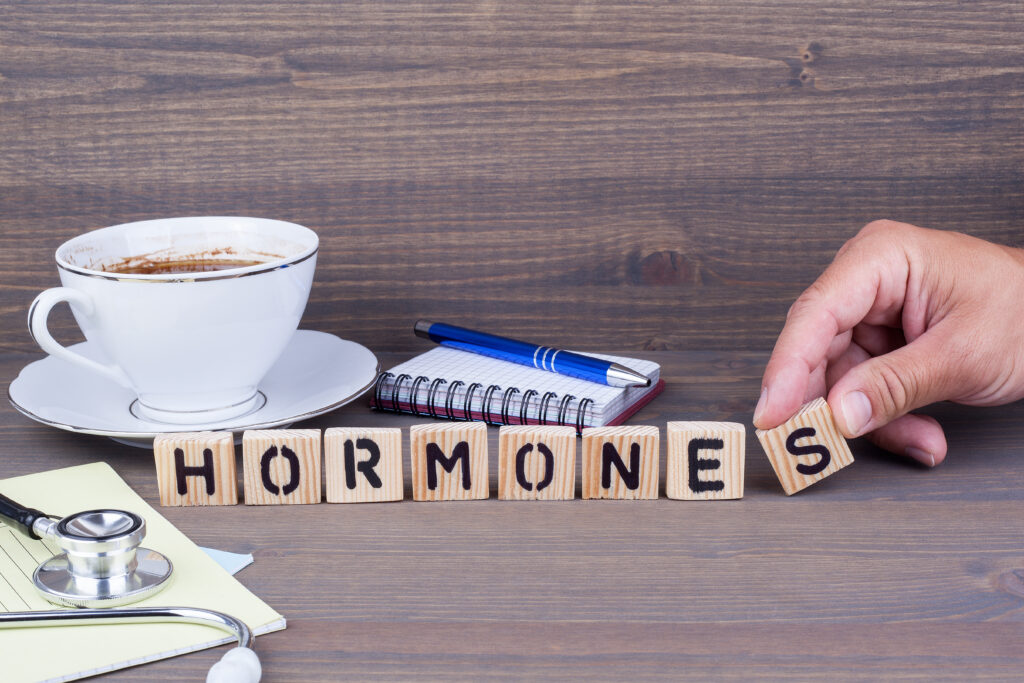There are millions of people living with cancer in the UK, so it’s not surprising that many people are looking for ways to reduce their risk of developing the disease as they age.
The information we have on cancer prevention is continuing to develop with time, and there are some well-accepted key lifestyle choices that we now know can affect your chances of getting certain types of cancer.
In this article, we’ll look at some of the different causes of cancer, and whether you can reduce your cancer risk as you age.
What are the causes of cancer?
There are many risk factors that can lead to cancer, and some of them are out of our control. Some things may increase your risk of cancer, but you can’t change, such as:
- Genetics
- Age
- Environmental risks
- Family history
However, there are other risk factors that can be changed and possibly prevent the development of certain cancers. For instance, wearing sunscreen to protect against UV radiation could help lessen the chance that you develop skin cancer.
Similarly, managing your alcohol intake, maintaining a healthy weight, following a well-balanced diet and quitting smoking can all help when trying to lower your risk of cancer.
One risk factor that fits neither category is infectious disease. These can sometimes be prevented, but not always, making them a little harder to manage.
The human papillomavirus (HPV) causes almost all cases of cervical cancer, as well as other cancers in places such as the anus, throat, and tongue. A vaccine has now been developed for HPV to help to prevent cancer. A recent study carried out in the UK found that cervical cancer rates were reduced by almost 90% in women in their 20s in England, who had been offered the HPV vaccine aged 12–13.
With so many risk factors for cancer, it’s the preventable ones that you should take note of and work on to improve your lifestyle.
Can cancer be prevented?
Not all cancers can be prevented, as not all risk factors can be eliminated. However, there are things you can do to lower your chances of developing certain types of cancer.
- Your risk of developing bladder cancer could greatly reduce if you quit smoking — smoking is the single biggest risk factor for bladder cancer because tobacco contains cancer-causing chemicals. Exposure to certain industrial chemicals is another risk factor for bladder cancer, affecting those who work in manufacturing industries.
- Every year, around 55,920 people are diagnosed with breast cancer in the UK. Although it’s not one of the most preventable, it’s thought that some lifestyle changes could make a difference. Things like a low alcohol intake, not smoking, maintaining a healthy weight, and even eating plenty of vegetables could reduce your risk of developing breast cancer.
- Bowel cancer is another common cancer, with over 46,000 people being diagnosed every single year. While it’s not 100% preventable, maintaining a healthy lifestyle and going for regular screenings is said to reduce your risk.
How can a healthy lifestyle reduce the risk of cancer?
Leading a healthy lifestyle is beneficial to many areas of your life, but it’s also thought to help reduce your risk of developing certain cancers.
Eating a well-balanced diet is often recommended by medical professionals, as there are some foods and dietary choices that can increase your risk of cancer. For example, eating a lot of processed meat and red meat has been linked to bowel cancer. Decreasing your intake or avoiding it altogether could help lower your chances of developing this cancer.
A large study by Dr. Ed Giovannucci and Dr. Mingyang Song showed that living a healthy lifestyle prevented 40% of the cancer cases and 50% of cancer-related deaths within the participants. They found that healthy lifestyle habits make a huge difference to the rate at which cancer developed and progressed.
The healthy lifestyle habits were:
- Exercising for 150 minutes per week
- Maintaining a healthy body mass index (BMI) between 18.5 and 27.5
- Not smoking
- Low alcohol intake
Many of these habits are easy to incorporate into your daily life, and making these small changes could benefit you greatly when it comes to cancer risks as you age.
Ways to prevent cancer
Although it’s not possible to completely prevent all cancers, living a healthy lifestyle could decrease your risk of developing the most common ones.
As well as making the right choices for your health, you should attend regular cancer screenings when necessary to ensure that any signs of cancer are detected as early as possible.
When you combine a healthy lifestyle with early detection, any treatment you do receive for cancer should be able to work at its absolute best.
Avoid tobacco
Tobacco has been linked to many types of cancer such as lung, breast, and cervical cancer, so it’s important to quit smoking as soon as you can. Secondhand smoke can also impact your risk of developing these cancers, as the negative effects of tobacco are still entering your body.
Quitting smoking also includes things like vaping and e-cigarettes, as they can still increase your risk of developing cancer and pose a serious health risk. If you really want to maintain a healthy lifestyle, one of the best things you can do is to quit smoking.
Cut down on alcohol
Alcohol is said to cause around seven different types of cancer, including breast, bowel, and mouth cancer.
When you drink more than the recommended amount of alcohol, it damages the cells within your body. The cells then struggle to repair themselves, contributing to an increased risk of cancer.
Alcohol can also cause your cells to divide at a quicker rate, which increases the chance of cancer developing. When you drink alcohol, it can cause changes to your mouth and throat, leaving them susceptible to cancer causing chemicals like the ones found in cigarettes.
Cancer fighting foods
Your diet is thought to play an important role in your likelihood of developing certain cancers. Eating a plant-based diet that includes lots of fruits and vegetables has been shown to lower the risk of cancer by 10% in a study conducted in 2021.
Some foods have even been labelled as ‘cancer fighting foods’ due to their unique properties. These foods contain phytonutrients, which are said to help lower your risk of developing cancer. There are over 4,000 different phytonutrients, so you need to make sure that you eat a balanced diet. Don’t focus on only eating a couple of foods that contain them, as you may miss out on the other phytonutrients out there.
Here are some of the top cancer fighting foods that contain phytonutrients:
- Berries
- Broccoli
- Grapes
- Walnuts
- Tomatoes
- Spinach
- Sweet potatoes
These foods are very easy to incorporate into your diet, so be sure to increase your intake of plant-based foods to possibly reduce your risk of developing cancer.
Regular medical care
Receiving regular medical care and health screenings is said to help lower the risk of you developing cancer as you age, and it also helps with early diagnosis. When cancer is caught early, you typically have a higher chance of responding to the treatment. So, as well as being preventative, it’s also beneficial for any treatment you receive.
You can do regular self-examinations for different types of cancer. For example, breast cancer can be detected early through regular checking of your breasts. Similarly, testicular cancer can be detected early if you perform regular checks on your testicles.
Screening for cancers is important too, with cervical screenings to check for cervical cancers and mammograms for breast cancer screening recommended to all women over a certain age.
Women will typically have their first cervical screening at the age of 25 and mammograms are recommended between the ages of 50 and 70.
Why is early diagnosis of cancer important?
Overall, cancer can be caused by various factors, both preventable and unavoidable. If you want to limit the risk of developing cancer, some of the key things to do include the lifestyle changes mentioned above.
At Echelon Health, we provide a range of health assessment packages that include a number of medical tests and scans, from blood tests to MRI brain scans. You can choose from a number of packages, including a Core Cancer package. This package contains:
- Blood test
- CT abdomen scan
- CT pelvis scan
- CT virtual colonoscopy
- Thyroid ultrasound
- Testes/ovaries ultrasound
- MRI prostate
- Digital mammogram
Our Core Cancer package is created with the intent of detecting the most common cancers before they can develop into something more serious. Screening is critical to help you manage your risk of cancer, so if you’re concerned or want the peace of mind of knowing all is well, book a cancer screening with one of our expert medical professionals today here at Echelon Health.
Early diagnosis for cancer can make a huge difference to your chances of survival, which is one of the reasons why it’s so important. If cancer care is delayed or inaccessible, it can lower the chances of survival for all types of cancer.
However, with early diagnosis through regular checks and screening, the survival rates and associated problems should decrease. This is an important public health strategy that could have a positive impact on cancer diagnosis as we know it.
Alternatively, if you want full peace of mind about cancer and other diseases, we have our flagship Platinum Assessment which, through the use of the best imaging technology available, can help us detect up to 92% and 95% of preventable causes among men and women respectively. The full list of our assessments can be found on our website, or if you would like to have a chat with us you can give us a call at 020 7580 7688.
Sources:
- https://www.macmillan.org.uk/dfsmedia/1a6f23537f7f4519bb0cf14c45b2a629/9468-10061/2022-cancer-statistics-factsheet#:~:text=Last%20updated%3A%20October%202022.,5.3%20million%20by%202040%20i.
- https://www.cdc.gov/chronicdisease/resources/publications/factsheets/cancer.htm
- https://siteman.wustl.edu/prevention/preventing-cancer/12-preventable-cancers/
- https://www.health.harvard.edu/staying-healthy/more-evidence-that-a-healthy-lifestyle-might-help-prevent-cancer
- https://www.cancerresearchuk.org/about-cancer/causes-of-cancer/diet-and-cancer/does-having-a-healthy-diet-reduce-my-risk-of-cancer
- https://www.cancerresearchuk.org/health-professional/cancer-statistics/statistics-by-cancer-type/bowel-cancer
- https://www.preventcancer.org/resource/ways-to-prevent-cancer/
- https://www.cdc.gov/cancer/dcpc/prevention/index.htm
- https://www.bannerhealth.com/healthcareblog/advise-me/ways-you-can-reduce-your-risk-for-cancer
- https://www.cancerresearchuk.org/about-cancer/causes-of-cancer/alcohol-and-cancer/does-alcohol-cause-cancer
- https://www.cancerresearchuk.org/about-cancer/cancer-symptoms/why-is-early-diagnosis-important



